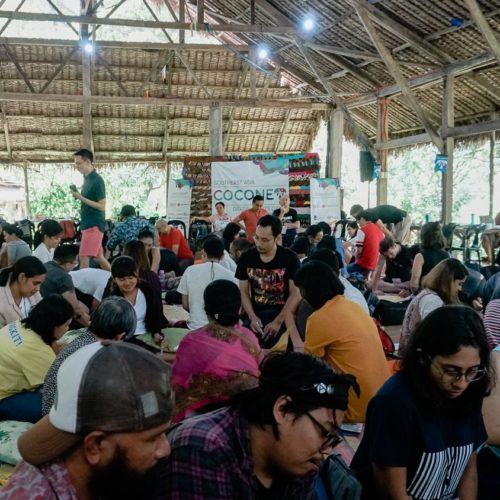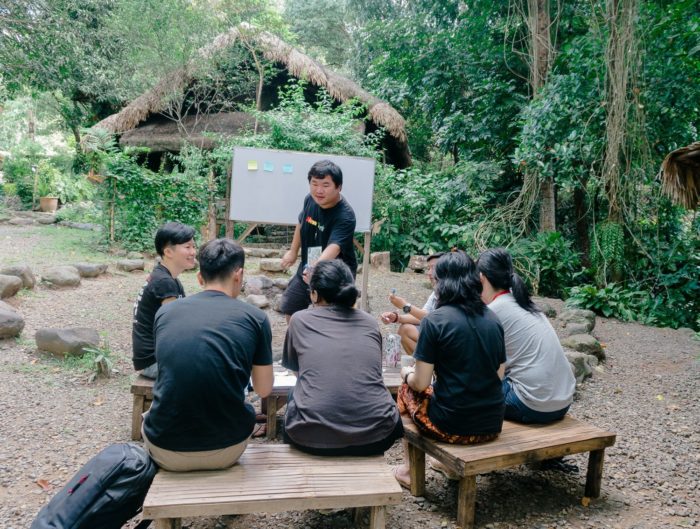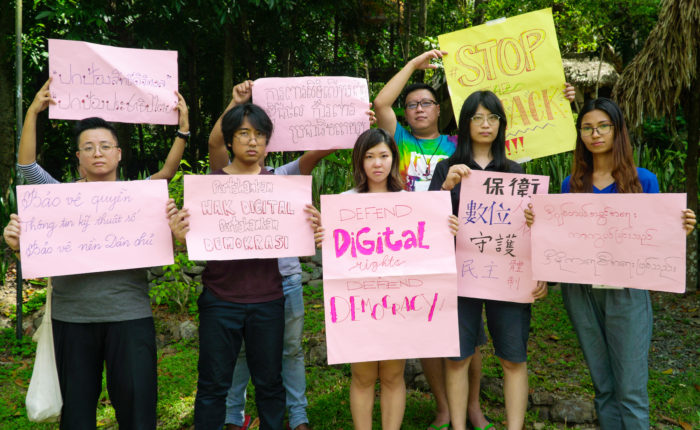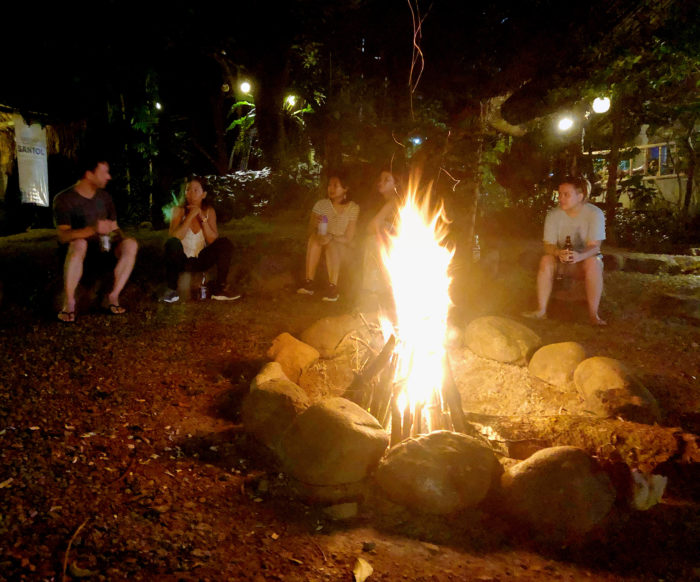While movements for various human rights issues are thriving in Asia — in Indonesia, Hong Kong, Philippines, West Papua, etc.– sustained movement-building remains crucial in the region. Actors working with and in movements face a lot of threats — repressive legislation and policies, state violence and surveillance, and emerging technologies like artificial intelligence and machine learning that could make such challenges even harder to face.
Coconet II comes at a crucial time. 120 activists, campaigners, journalists, artists, technologists, each supporting various movements from across Southeast Asia, gathered to learn, share, and co-create solutions to the aforementioned issues.
They deepened discussions around issues that impact digital rights, exchanged tactics and skills to strengthen each other’s movements, and explored collaborative campaigns (some of which already started at the camp).


Coconet II ran for 5 days at a secluded nature reserve in the Philippines, at the foothills of the Sierra Madre Mountain Range. The camp followed an open space methodology that ensured participants could share their expertise, the issues they’re working on (such as online gender-based violence, artificial intelligence, digital safety, problematic corporate platforms) and essential skills to address such challenges (such as effective communication, storytelling, campaigning and protest tactics, addressing activist burn-out and trauma, and so on).
During the day, sessions happened in gazebos, cottages, on the grass, and other such spaces, while at night, film screenings, bonfire discussions, and other activities helped participants rest and unwind.
Cross-movement conversations and collaboration discussions happened throughout the camp. Activists from West Papua, Hong Kong, and Indonesia shared stories about the recent surge of protests from their parts. Some participants collaborated on a campaign to #StopTheAttacks and halt the harassment of digital rights activists in the region, and to release those who are in jail.
Other collaboration plans include making drone documentary videos on land rights and environmental issues, having regular podcasts that cover digital rights and civic tech in the region, creating a regional rapid response network on digital threats, and forming a network of artists and cultural workers.


A platform was created to facilitate these and other potential collaborations among participants.
Coconet II ended with everyone sharing a spirit of solidarity and a commitment to continue fighting for digital rights in the region. And there was a shared sentiment that although many challenges still remain, we had a much better chance if we were in this together.
Indeed, Coconet is more than just a camp. By connecting communities and networks, we hope that Coconet catalyzes individual campaigns, collective collaborations — even regional movements — and we’re confident Coconet’s growing community is fired up to make all of this happen.
The views expressed in this post do not necessarily reflect the views of the Coconet community, EngageMedia, APC, or their funders. Copyright of the article is held by the author(s) of each article. Check out our Contribution Guidelines for more information. Want to translate this piece to a different language? Contact us via this form. This publication is licensed with Creative Commons Attribution-NonCommercial-NoDerivatives 4.0 International.
